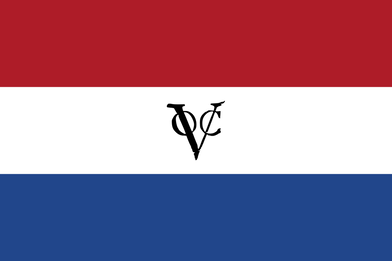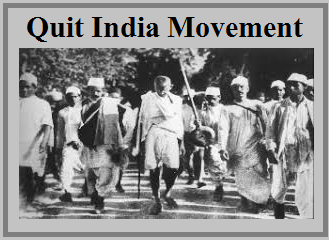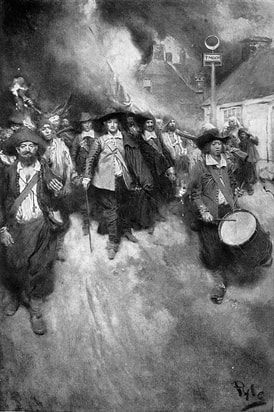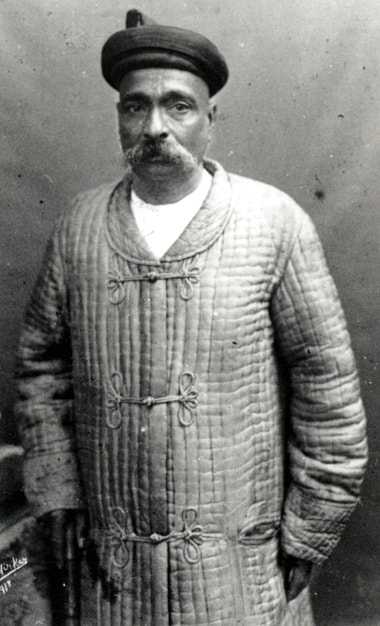 Flag of the Dutch East India Company
Flag of the Dutch East India Company The burden of Dutch taxes on the Chinese inhabitants of Taiwan was a source of much resentment. The falling price of venison, a chief export of the island at the time, hit licensed hunters hard, as the cost of the licenses was based on meat prices before the depreciation. The head tax (which only applied to Chinese, not aborigines) was also deeply unpopular, and thirdly, petty corruption amongst Dutch soldiers further angered the Chinese residents.
The revolt was led by Guo Huaiyi (Chinese: 郭懷一; 1603–1652), a sugarcane farmer and militia leader originally from Quanzhou known to the Dutch by the name Gouqua Faijit, or Gouqua Faet. After his planning for an insurrection on 17 September 1652 was leaked to the Dutch authorities, he decided to waste no time in attacking Fort Provintia, which at the time was only surrounded by a bamboo wall. On the night of 7 September the rebels, mostly peasants-farmers armed with bamboo spears, stormed the fort.
The following morning a company of 120 Dutch musketeers came to the rescue of their trapped countrymen, firing steadily into the besieging rebel forces and breaking them. Governor Nicolas Verburg On 11 September the Dutch learned that the rebels had massed just north of the principal Dutch settlement of Tayouan. Sending a large force of Dutch soldiers and aboriginal warriors, they met the rebels that day in battle and emerged victorious, mainly due to the superior weaponry of the Europeans.
Over the following days, the remnants of Guo's army were either slaughtered by aboriginal warriors or melted back into the villages they came from, with Guo Huaiyi himself being shot, then decapitated, with his head displayed on a spike as a warning. In total some 4,000 Chinese were killed during the five-day uprising, approximately 1 in 10 Chinese living in Taiwan at that time. The Dutch responded by reinforcing Fort Provintia (building brick walls instead of the previous bamboo fence) and by monitoring Chinese settlers more closely. However, they did not address the roots of the concerns which had caused the Chinese to rebel in the first place.
However, the Taiwanese Aboriginal tribes who were previously allied with the Dutch against the Chinese during the Guo Huaiyi Rebellion in 1652 turned against the Dutch during the later Siege of Fort Zeelandia and defected to Koxinga's Chinese forces. The Aboriginals (Formosans) of Sincan defected to Koxinga after he offered them amnesty; they proceeded to work for the Chinese and behead Dutch people in executions. The frontier aborigines in the mountains and plains also surrendered and defected to the Chinese on 17 May 1661, celebrating their freedom from compulsory education under Dutch rule by hunting down and beheading Dutch people and destroying their Christian school textbooks.



 RSS Feed
RSS Feed